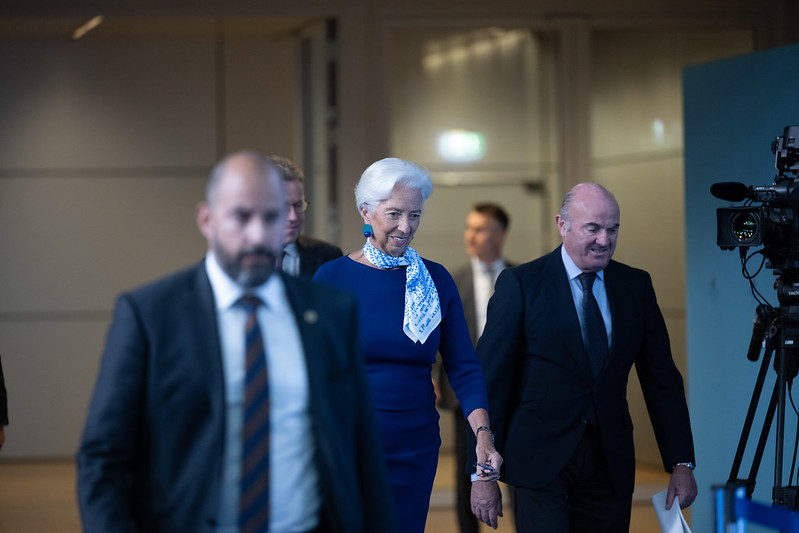ECB’s Lagarde: Bulgaria’s Euro Adoption Strengthens Prosperity and Security
4 November 2025

By David Barwick – FRANKFURT (Econostream) – European Central Bank President Christine Lagarde on Tuesday said Bulgaria’s adoption of the euro from January 1, 2026 would mark the culmination of a long integration process that promises greater economic prosperity and protection against global volatility.
Speaking in Sofia at a conference on Bulgaria’s forthcoming euro area entry, Lagarde said the changeover “will happen in a single night, but it is the outcome of a much longer journey.” Bulgaria’s move, she said, would secure its “rightful place at the heart of … Europe’s monetary union.”
Adopting the single currency would deliver two key benefits, she said: prosperity and security. Bulgaria’s close integration with the euro area already underpinned its strong growth, but euro adoption would remove “the last currency barriers within the Single Market”, she said.
Lagarde cited Bulgaria’s export and investment links with euro area partners, noting that firms would save about one billion levs per year in conversion costs. The change would also “open the door wider to European capital markets” and lower financing costs, she said.
Turning to financial stability, Lagarde warned that fixed exchange rate regimes “are vulnerable under stress”, whereas full membership in the euro area “provides complete protection against exchange rate volatility” and “shields Bulgarian firms from sharp currency swings.”
She added that the euro area’s size and deep financial markets made it more resilient to global capital flow shocks, while using the euro for most imports insulated households and companies from exchange rate-driven price increases.
Lagarde also addressed concerns among Bulgarians about losing monetary sovereignty or facing higher prices. The currency board had long meant Bulgaria “import[ed] the monetary policy of larger economies, but with no seat at the table,” she said. Joining the euro would give the Bulgarian National Bank governor “the same say, the same vote and the same responsibility as every other member” of the ECB’s Governing Council.
On price concerns, Lagarde said that when changeovers were managed transparently and monitored effectively, “the impact on consumer prices is modest and short-lived.” In past transitions, inflation effects were between 0.2 and 0.4 percentage points, she noted, including Croatia’s 0.4 percentage-point uptick that rapidly faded.
Public support for the euro historically rose after adoption, she said, reaching 83% on average across the euro area today.
Lagarde cautioned that the greater risk after adoption was not higher prices or loss of control, but “losing reform momentum once inside the euro area.” Sustained institutional alignment and deeper integration into European value chains would help Bulgaria turn convergence into lasting competitiveness, she said.
“Given Bulgaria’s long-standing currency peg, the costs of forgoing an independent monetary policy are minimal, yet the gains are substantial: smoother trade, lower financing costs and more stable prices,” Lagarde said.
By adopting the euro, she concluded, Bulgaria was showing that “through unity and shared strength, the country stands not only with Europe, but at the heart of Europe.”
